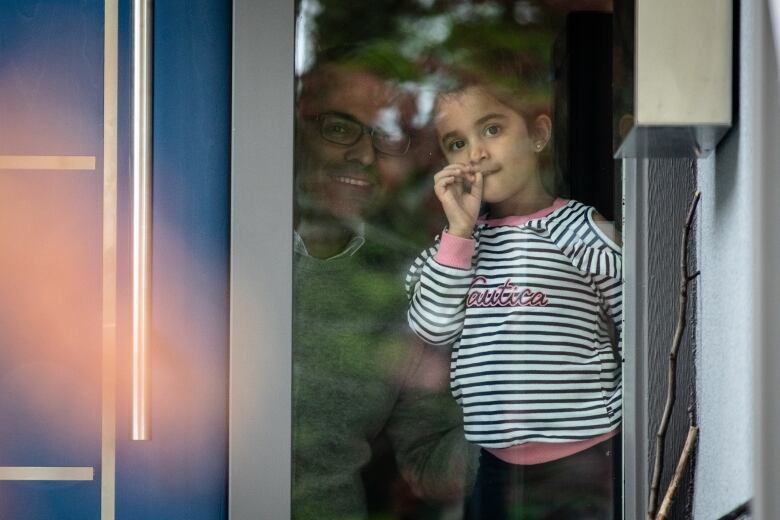Vancouver's Muslim communities expecting a very different Ramadan during pandemic
With stay at home orders, some say the temptation to snack will be extra strong during fasting hours

Standing in the usually bustling Baitur Rahman Mosque in Delta, where communal prayers and celebration to break fasts would normally be held, Imam Umair Khan said Ramadan 2020 will be unlike any he's ever experienced.
Because of the global COVID-19 pandemic and efforts to contain the disease's spread, the mosque won't get to hold cherished community gatherings during the month of celebrations.
Still, Khan says Ramadan 2020 will reflect values of self-discipline, charity and gratitude.
"I like to say that more mosques have risen in the community in the sense that many people have kind of made a mosque in their homes," Khan, 34, said.
"It helps us understand what difficulty is and what pain people in different parts of the world go through…. It kind of softens our heart with sympathy toward our other brothers and sisters who may be less fortunate."
Ramadan is the ninth month in the Islamic calendar. Muslims observing it go without food and drink from sunrise to sunset every day then get together to break their fast, eat and pray.
The celebration begins with the new moon Friday and will end May 23.
Gratitude, charity
Yashina Jiwa, 38, said she will miss the big dinner parties and prayer gatherings Ramadan usually brings.
Jiwa lives in Vancouver with her husband, 44-year-old Rizwan Mawani, and two children: two-year-old daughter Nureya and seven-month-old son Zayan.
Watch as Rizwan Mawani reads his daughter a Curious George Ramadan story:
"I think we can also look at it as an opportunity to think about those that particularly need a helping hand," Jiwa said.
"Hopefully all of us can take moments in our day to also be grateful for what we have even amidst the challenges that we're facing."
Mawani said they're trying to keep in touch with his family in Toronto by having iftar — the evening meal to celebrate breaking the day-long fast — over video chat. They're also teaching Nureya how Ramadan is celebrated around the world with arts and crafts.
In Vancouver, 64-year-old Mahamud Jinnah isn't keeping up with his usual tradition of spending Ramadan with his mother and father, aged 84 and 90, in Burnaby.

He and his wife are living with his daughter in her Vancouver condo to keep distance and avoid any chance of spreading COVID-19 to his parents.
"The lockdown has shown us that in reality, although we act like we're different, we're all in this together," Jinnah said.
"We're just one world and it just shows how much you have to care for another person."

'Extra discipline'
Everyone CBC News spoke to agreed there will be one unique challenge this year because of stay-at-home orders: fasting will be extra tough because snacks are just a stroll to the pantry away.
"I'm going to be at home all the time," Mawani said. "When you're busy during your day and you're going about things, you have distractions and that makes fasting a little bit easier."
Jinnah agreed.
"You have a lot more access to food," he said. "You tend to snack a little bit more."
Khan said he's joked with numerous congregants about this year's extra challenge.
"It's going to take some extra discipline," he said. "This pandemic is actually giving Muslims an opportunity to now practice that self-discipline and that realization of sacrifice."
Ramadan ends with Eid al-Fitr.
Mawani said he hopes restrictions will be loosened by then so that day can be celebrated in a more familiar way.
If you have a COVID-19-related story we should pursue that affects British Columbians, please email us at impact@cbc.ca.
Corrections
- A previous version of this story incorrectly stated that Ramadan begins on Thursday. In fact, it begins on Friday.Apr 23, 2020 9:14 AM PT
With files from Belle Puri
